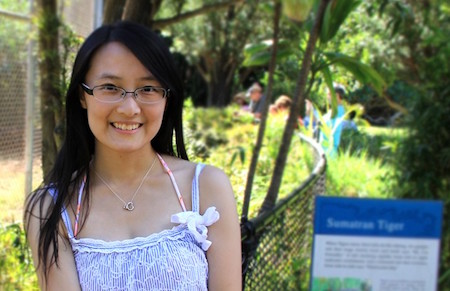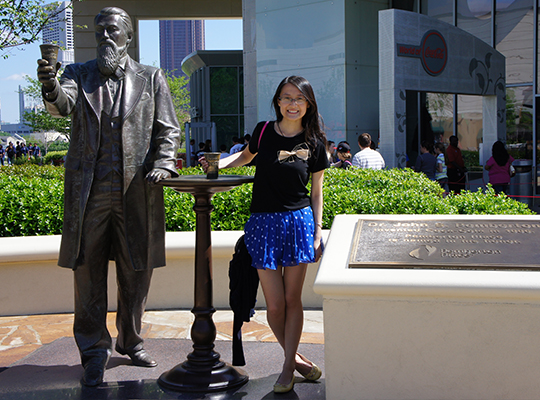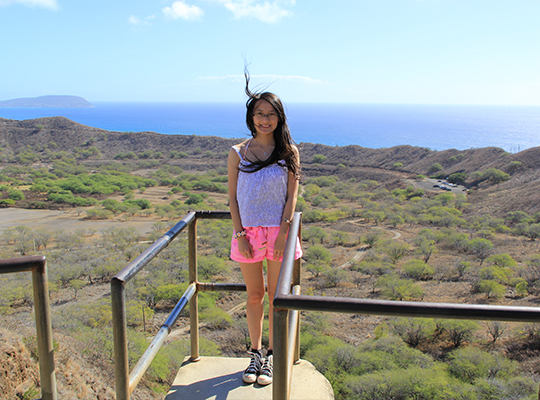
Mingge Wu
Mingge Wu became the first doctoral candidate to receive a PhD in Economics from Georgia Tech in May, 2014. After earning a B.S. and B.A. in applied economics from Wuhan University in China, she came to Georgia Tech in 2008 to pursue her master's degree. During her time as a master's student, she discovered a topic that inspired further research as a PhD student: how governments in developing countries balance economic growth and environmental concerns.
Pursuing Economics at Tech
Even though my undergraduate education provided me with a solid background in economic theory, I had no real clear ideas about what economic research looks like. My research interests became motivated by the coursework in the master’s program I completed here at Georgia Tech, which taught me how various fields differ from and interact with each other. I then chose to delve into further research as a Ph.D. student, exploring the interactions between international trade and environmental regulations
Few programs combine economics, engineering, and public policy into such a well-organized package. The program is small, and everyone works closely with each other, meaning professors are all very helpful and the students’ voices will always be heard.
The Ph.D. in Economics program provided me with rich resources related to research. I had the opportunity to work with professors in math, business, public policy, industrial engineering and environmental engineering. Few programs combine economics, engineering, and public policy into such a well-organized package. The program is small, and everyone works closely with each other, meaning professors are all very helpful and the students’ voices will always be heard. I worked in particular with my advisor, Tibor Besedes, along with Usha Nair-Reichert and Eric Johnson.
Researching Environmental Regulations
My research examined the interactions between international trade and environmental regulations motivated by the pollution haven hypothesis, which states that when seeking to set up factories abroad, large industrialized nations will often look for the cheapest option in terms of resources and labor. This often means sending production to developing nations with less stringent environmental regulations, reducing pollution control.
In particular, my dissertation looked at how environmental regulations affect international bilateral trade flows. It showed that imports will increase for European Union Emission Trading Scheme (EU ETS) members for dirty industries while exports decrease. Additionally, EU ETS changes firms’ foreign direct investment decisions. According to my theoretical model, both inward and outward foreign direct investment in dirty industries decreases for EU ETS members.
Teaching Experience
Teaching the undergraduate principle economics course was one of my greatest experiences at Georgia Tech. As a non-native English speaker, it was a challenge to teach 150 students with a diverse set of backgrounds at one time. It forced me to think about economics from an outsider’s perspective.


